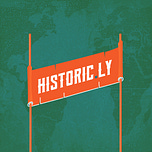Torkil Lauesen is probably the closest thing we have to a real life Robin Hood. Being a child of the cold-war, observing the struggles of decolonization efforts in the third world. He was also horrified at monumental efforts Western Democracies took to stop third world countries asserting their own independence. The US invoked fire and fury upon Vietnam, assassinated Patrice Lumumba in Congo and actively supported Apartheid South Africa, while preaching the importance of Democracy at home.
Western European countries were not much better. He found that the working class were all too happy to accept the fruits of colonial theft. In his disillusionment, he joined the Communist Task Force (KAK, Danish: Kommunistisk ArbejdsKreds). KAK tried to create a more revolutionary working class in Denmark, but their efforts proved to be futile. Therefore, from 1972 on, they channeled their political solidarity through a legal charity where they donated money to the Anti-Apartheid struggle in South Africa, Palestine, and Congo. They also had an illegal resistance cell that robbed banks and sent over millions to the same movements around the world. In 1989, the police finally caught up to them and many of their members were arrested. In the popular culture, they became known as the Blekinge Street Gang, because they were apprehended in Blekinge Street.
We’ve seen many movies romanticizing the gang as a true crime story, very few people have tried to understand their point of view and how they viewed the global anti-imperialist struggle. Majority of the western world mistakenly view the Scandinavian countries with a rosy glow, they see the pinnacle of social-democracy that we must strive for. Unfortunately, this view is from a historically blind point of view.
Today, Torkil Lauesen talks us through over 100 years of the history of Denmark and also gives us advice the eternal struggle against imperialism that all of us must take on. He also talks about his book The Global Perspective: Reflections on Imperialism and Resistance.
Excerpt from The Global Perspective: Reflections on Imperialism and Resistance
My political itinerary started with emotion; for example, the outrage at US napalm bombs and the hope of justice for the people of Vietnam. It probably also started with a guilty conscience, since I lived such a comfortable life while people in the Third World did not. I still live a very comfortable life. I am writing this text on one of the two computers we own. We live in a spacious two-bedroom apartment. We have an iPad, two mobile phones, and a flat screen TV. The apartment is equipped with all of the modern bathroom and kitchen facilities your heart desires. When I go on vacation, I fly to countries whose people cannot afford vacations. There, I enjoy their climate, culture, and food. My salary allows me to buy anything I need and much I don’t need.
The fact that living conditions around the world are so different has been the driving force of my political activism. For years, I’ve been pondering the following questions: Why does this difference exist? In what historical context did it develop? What are the economic and political mechanisms that keep it in place? And why is it so bloody difficult to change all of this?
I went to boarding school in the small Danish town of Holbæk. There, I experienced the uprising of 1968. Its impact was so strong that it even engulfed the Danish countryside. We challenged the authorities at our school, edited a critical student newspaper, and organized meetings on the war in Vietnam. I belonged to a study circle that discussed political theory in order to understand the injustices of the world and find ways to fight against them.

A KAK poster from the 1960s. It says, “World Bank: The Most talented Imperialists Work Here.”
In 1968, one of my peers introduced me to the Kommunistisk Arbejdskreds (KAK), the “Communist Working Circle.” It was a life-altering moment. KAK’s theoretical foundation, the “parasite state theory,” corresponded to my everyday experiences. It explained that there was a direct connection between the wealth in our part of the world and the poverty elsewhere. The connection was imperialism. The parasite state theory also explained why the working classes in our part of the world were not interested in revolution but only in changes to the ruling system that would grant them a bigger share of imperialist plunder.
Once I discovered KAK, my individual, uncoordinated, and emotional political approach gave way to an organized and strategic one. I first became a KAK sympathizer and later a very dedicated member. I went on study trips to the Third World and gathered resources to support Third World liberation movements, legally as well as illegally. My travels to Middle Eastern and African countries and the collaboration with Third World revolutionaries strengthened the emotions that got me interested in politics in the first place—my wish for justice and my outrage at imperialist oppression—but they also sparked a feeling of personal responsibility: Third World liberation movements were no longer abstract political entities but now consisted of real-life people and comrades who I felt obliged to. We, the members of KAK, wanted to be a little wheel in a big machine fighting for a different world order. Our emotions, experiences, and actions led to constant questioning of ourselves and our politics. We had to remain motivated and engaged in this fight—and, if possible, we had to motivate others to do the same.
Theory was very important to us. Our practice was always informed by theoretical, strategic, and tactical reflections. This also applied to our collaboration with Third World liberation movements. We would discuss politics first; only after would we decide on any action plan. Emotion, theory, organization, practice, everything was connected: emotions were the driving force, theory provided guidance, organization brought structure, and practice gave concrete results. In my case, forty years of political activism have been defined by this framework. This book is a summary of my experiences.











